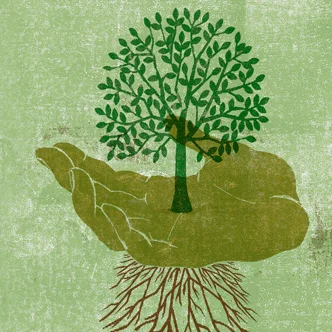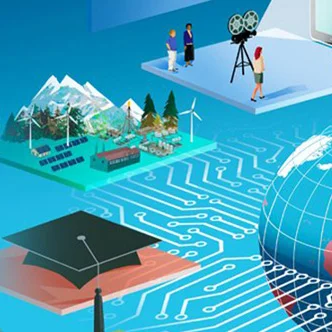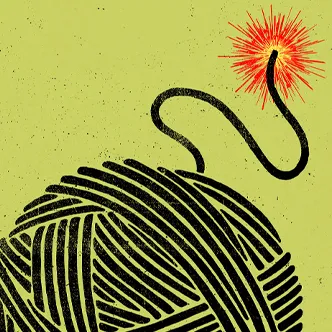The Undergraduate College
Explore what inspires you, discover Vermont, find meaning in doing.
Vermont | Monterey, California | The World
A breadth and depth of learning and experience … a capacity for exploration that will last you a lifetime
An expansive education built on critical thinking and compassionate doing
A constellation of schools and programs, a world of educational opportunity
Loading...
Loading...
- There is a combination of things at Middlebury, we share with maybe one or two other institutions in the United States. A question about what do we call ourselves. Do we call ourselves a college? Of course we do. Do we call ourselves a university, no?
- Middlebury offers the intimacy and connectivity of a small liberal arts college, while having the reach, network, and resources of something like a much larger university.
- [Laurie] You have of course, the College, the jewel at the center. But then we have this constellation of institutions and programs all around us. This global policy incubator that is the Middlebury Institute at Monterey. The literary force of the Bread Loaf School of English, the powerful linguistic institution of our language schools.
- [George] We have a growing network of Schools Abroad. We have done a lot of work to upgrade and enhance Bread Loaf. And then of course, we’ve got the Middlebury Institute in Monterey, which is a whole new domain for the school. So that sense of place maintains a deep significance.
- We do graduate education, not in competition with undergraduate education, but we work in tandem with it. We are making sure that our undergraduate education is something that prepares students for the world, as well as gives them the kind of classical interdisciplinary liberal arts and sciences education.
- [George] Each node of that network can be enhanced by deeper connection to each other. I think it’s really powerful.
- This is going to be the first step.
- That wish to connect is, in my view, very much a a unique part of Middlebury’s spirit.
- I am Roni Lezama, I am from New York City. I study international politics and economics with a minor in education studies. I wanted a community that was tight-knit and small. And I wanted a program that was globally focused. Middlebury is giving us a macro perspective of the world and the tools to understand everything that’s happening at every given moment. It’s allowed me to really think about politics, which was my passion coming into Middlebury, in a global perspective.
- We live in a world that is definitionally more interrelated than it’s ever been. Given the global challenges we face, inspiring a new generation of students to be able to go out and tackle those challenges requires to produce a certain breadth of experience, a breadth of learning that Middlebury can supply.
- I think an expansive education is one that teaches you skills, and at the same time gives you a deeper capacity for exploration that you never lose. And you will also have the confidence to take the long view. You will not be afraid of history, and you will not be afraid of thinking about the future.
- I have been a research assistant for the economics department doing some work on NASA. I also held a research position with the Spanish Department, the Department of Diversity, Equity, and Inclusion trying to figure out ways to really advance and uplift that work here on campus. I was given the tools to actually think about how can I apply everything that I’ve learned into solving problems of the world.
- The kind of curiosity that you will develop here at Middlebury is something you have for the rest of your life. Curiosity is the thing that keeps us going, in my view. And it’s one of the great gifts of a liberal arts and sciences education.
- [George] This is just a broader place than when I was here. The ambitions of the place are broader, the aperture through which we look at the world is wider.
- One of the things we want to do at Middlebury is create students in the world who are work-ready and world-ready It doesn’t mean that you give up a liberal arts and sciences education, but rather you use it well, you have the breadth of imagination to understand what the changes are that are needed in the world.
- What we deliver to students, the nature of the pedagogy, the nature of the experiences we provide, how we prepare them to tackle the challenges of the futures, that’s just gotta be continually changing, evolving.
- I frequently talk about the fact that higher education is at the crossroads and in the crosshairs of American public life. Issues around the racial reckoning in the United States, the question of what it means to use our freedom of inquiry well, access is a deep public concern. How can the students who have the talent, but not the opportunity come to Middlebury and thrive here?
- [George] I go back to the mission of the school as Laurie has articulated it, which is to prepare students to live consequential, creative lives and to tackle the world’s most compelling challenges.
- I deeply believe in the value of that, and the only way we can get there is to continue to invest in it.
- Every time that there is something going on in the world where there is a community hurting, where there’s an individual hurting, we see a call to action by students. It’s always about what can we do.
- I get to work with and see Middlebury students often, the fact that we can prepare people to address these challenges, I think investing in that is just money extraordinarily well spent.
- Storm water to flow through there.
- Many of us loved our experiences at Middlebury so much that wouldn’t imagine a Middlebury that’s trapped in amber. Middlebury will always have certain essential qualities that evoke those memories, yet I think it’s incumbent upon all of us to contribute to driving Middlebury forward.
- We need that commitment to make sure that we stay at our most vital. There is no other institution that can give us the immersive experience, the global reach, and the transformational relationships that’s at the heart of what Middlebury can offer the 21st century.
Explore what inspires you, discover Vermont, find meaning in doing.
A constellation of schools and programs, a world of educational opportunity.
On Middlebury, liberal arts and sciences, and higher education.
A Middlebury education is predicated on immersive experiences that expand learning opportunities to all facets of student life at both the undergraduate and graduate levels. Whether one is living and studying abroad alongside native language speakers, conducting research in the field with peers and professors, or engaging with local communities in a voluntary or entrepreneurial capacity, a student’s learning experience at Middlebury is not confined to the classroom, but is instead designed to take full advantage of their distinct places of study—in the Champlain Valley and Green Mountains of Vermont, on the Monterey Peninsula, and around the globe.
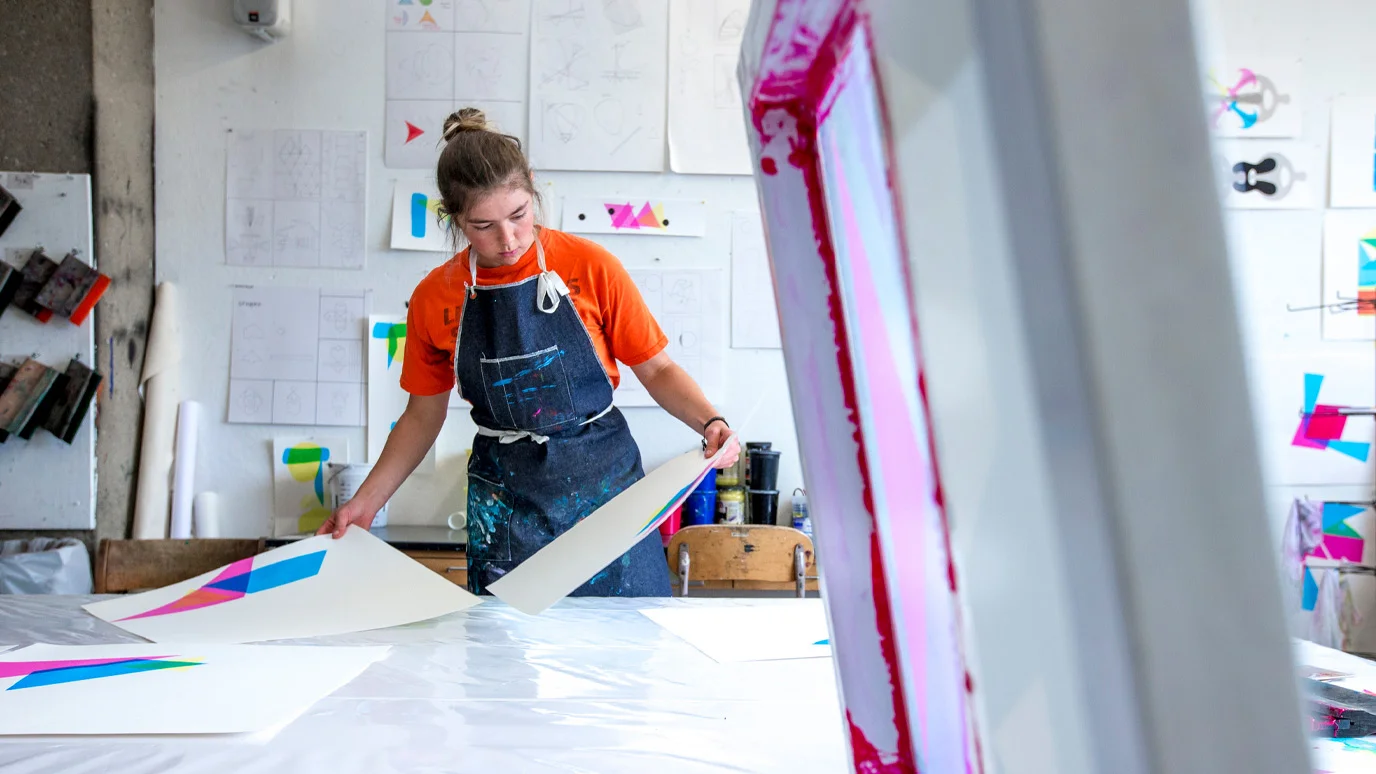
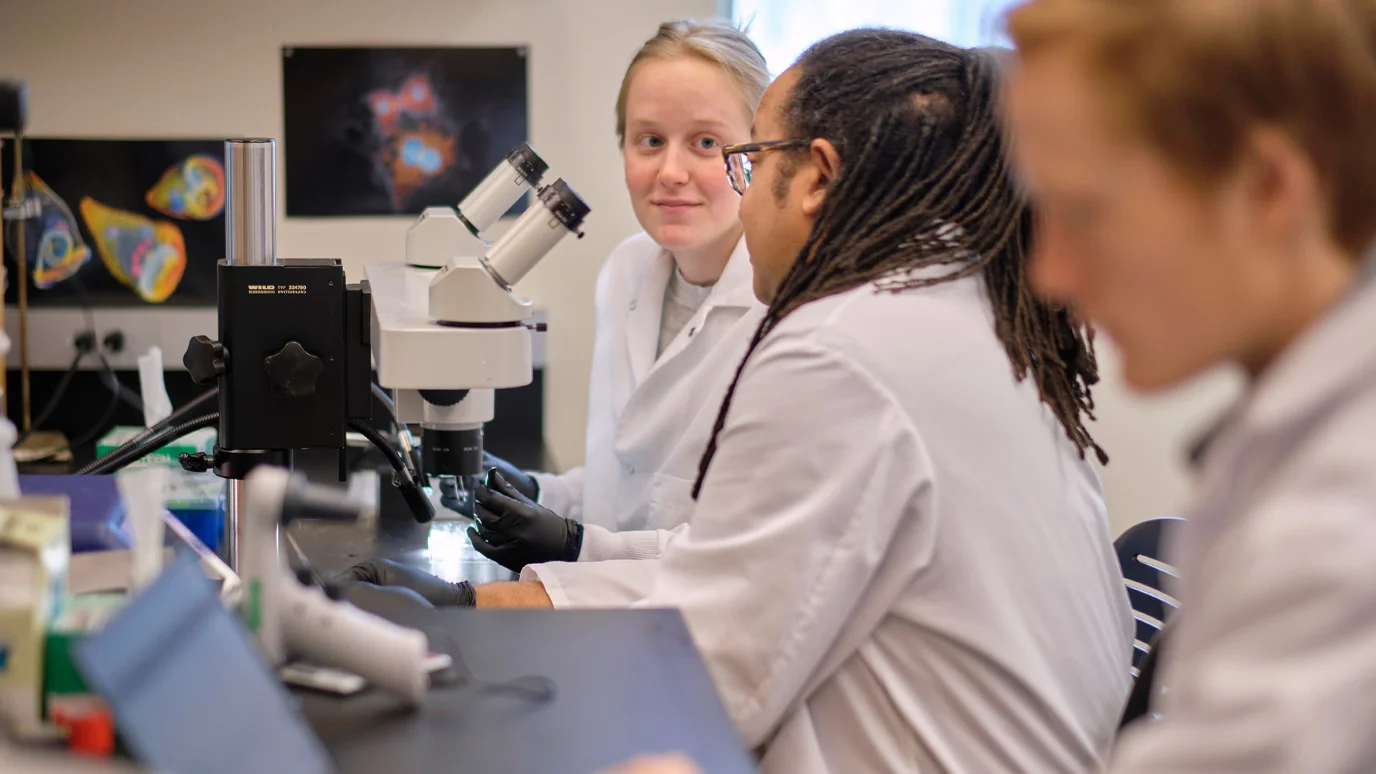
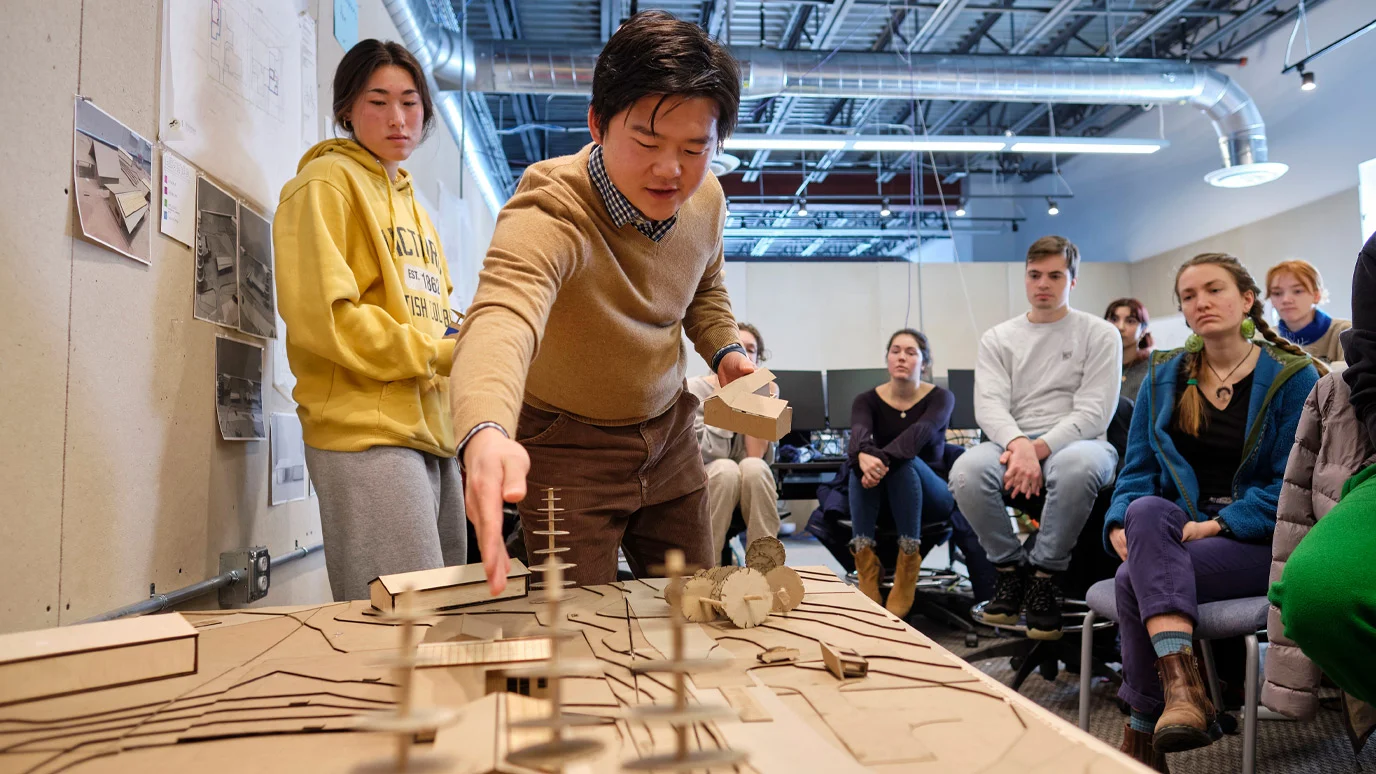
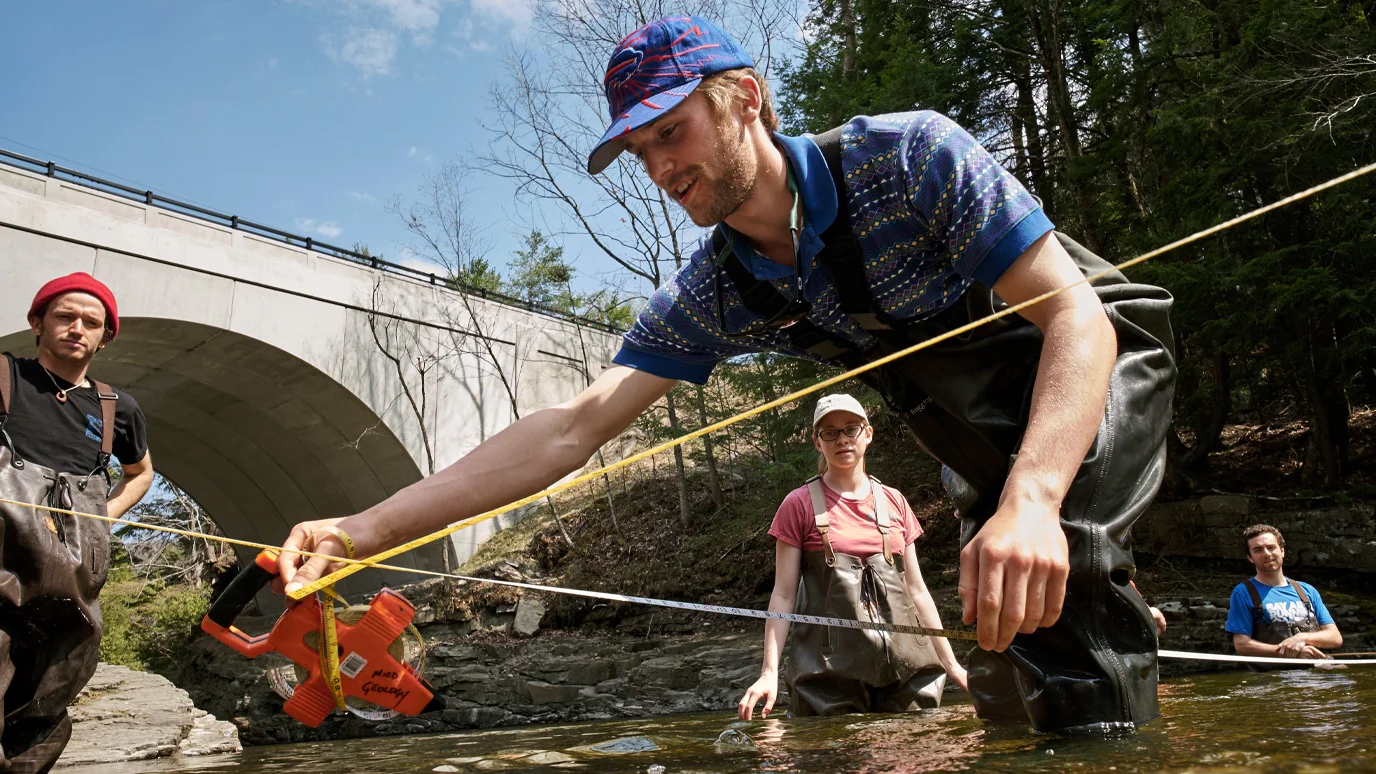
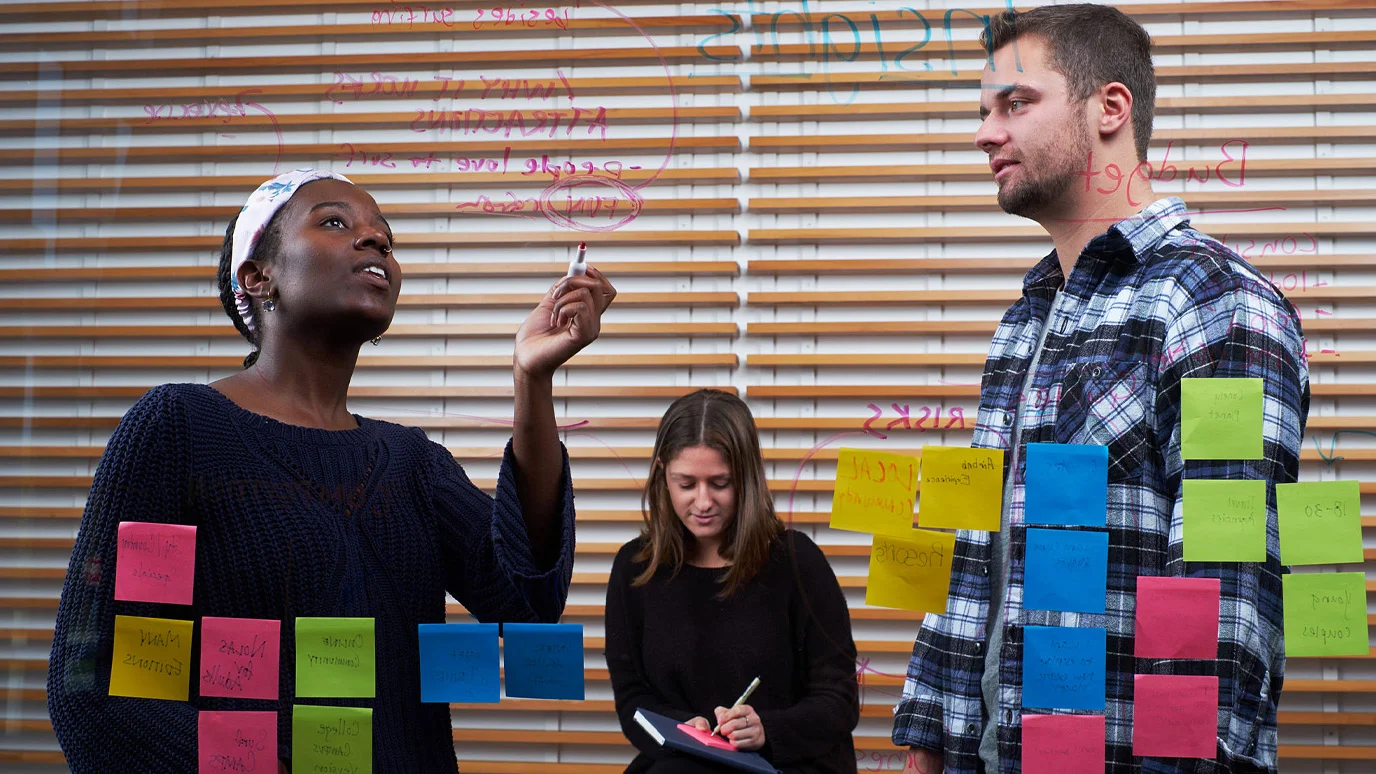
Middlebury Institute students on their immersive studies abroad.
Student perspectives on learning a language by living the culture.
Mission statements and immersive learning, school by school.
- I went on a whim and decided to take a anthropology course, and I fell in love with the material in class. It was called The Roaring Twenties, and we were learning about not the 1920s, but the 2020s, and our generation, Gen Z, and how the pandemic has affected not only our sense of self, but our perceptions of the world around us through social media and things like that, and how the pandemic really accelerated that self view and also view of the world. And as soon as I took that class, I realized that I wanted to explore more. So I decided to take two other anthropology classes in the following semesters, and it's now my minor. So I would say Middlebury really emphasized that exploration.
I really enjoy how pretty it is. Just stepping outside of a classroom, maybe I'm having a bad day and I look and I see the mountains and it just reminds me that, I don't know, it's a really good feeling to have so much beauty around you.
A first-year seminar is a course designed, every first year takes it, it's a course designed to get you involved in the liberal arts education and what the liberal arts actually looks like. A lot of these courses are unique and are something that professors are interested in but don't often teach. For instance, I teach a course called The Language of Conspiracy Theories, which is a fun course where we study why do conspiracy theories exist? Where do they exist in the 21st century and why do they keep popping up? Those are the types of courses that you'll be taking with your first-year seminar. There are a great way for you to engage with peers in your new class. They also give you, your first-year seminar professor is also your advisor, so it's a great way to get you involved with your first-year experience here at Middlebury and to get you set up for the rest of your academic career.
I am a firm believer that knowing what you don't like is just as important as knowing what you do like. The CCI or the Center for Careers and Internships does a really great job of exposing you to a variety of fields through their structure and their support systems. For example, the CCI is divided into about six or seven sectors with career advisors in their respected fields. They also put out weekly newsletters and we always have tons of career events happening throughout the week. Other resources that you can access, for example, are conversations with peer advisors who are trained, conduct resume reviews, and mock interviews. Another really great thing that the CCI does is ensure that opportunities are equitable. So they funded over $850,000 of internship funding for underpaid internships last year. One of my favorite resources that I've leveraged at the CCI has been the summer consulting program. And so I was paired with a partner at a firm and he spent countless hours helping me prep for really competitive internships. So I'm really excited to start off my senior year with a full-time job offer.
I think Middlebury professors are extremely accessible to students. We come to a place like Middlebury because we want to have those interactions with students, whether it's in the classroom or getting to know you better outside of academics or providing mentorship for both your career at Middlebury and beyond. Those are the type of interactions that we love, and so we try to provide lots of opportunities for you to have those types of interactions with us. So obviously there's in the classroom, that's one way that we interact with you but we also have office hours which are just times every week where students can drop in and talk to us about anything that they want, whether it's about questions that they have about material from class or anything else that they wanna talk about. And most professors have way more office hours than the minimum required 'cause we just wanna give all of our students opportunities to come. I schedule my office hours based on when students are available to make sure that they can all come and talk to me and I give students extra credit for class if they come, 'cause I just want to incentivize students as much as possible to come and have those interactions with me. The professors also have interactions with students outside of class. So in the Computer Science Department we have a barbecue every summer for students who are doing research with us on campus. And I've had lots of coffees and lunches with students to just talk about what's going on in their lives and what they're thinking about in terms of summer internships or what classes to take next semester or whatever they wanna talk about.
Ciao mi chiamo Naja e questo è un giorno della mia vita in Italia. Quindi la prima cosa che faccio e dicendo Buongiorno a Leo lui è bellissimo. E poi camminando verso la mia scuola. Questa la stanza per i miei corsi sia Middlebury College cosi bella vero. Adesso sedersi per la mia adesione. Dopo Mangio la colazione Ecco il mio cappuccino e la mia omelette io Sto anche provando a leggere per l'universita. Poi faccio i miei compitial caffe. Dopo quello ho bisogno di tempo per divertirmi quindi incontro i miei amici per i cocktail. Adesso ho una cena leggera con la mia famiglia ospite. E l'ultima cosa che faccio è andare un Jazz Club. E il mio posto preferito dove andare guarda alle mie amiche inalare. E questa è la mia vita in Italia Grazie per aver guardato. Ciao.
All about the College, visiting campus, affordability, applying.
Comprehensive and varied programs where all students can participate.
The fundamental importance of the visual and performing arts.
Meet Hillary Gerardi ’09, an elite sky runner.
Shabana Basij-Rasikh ’11
60 Minutes
A story of hope for those most in need. Meet Shabana Basij-Rasikh and the girls of SOLA.
Read more from 60 MinutesAnne Rimoin ’92
Midd Moment Podcast
A conversation with an infectious disease epidemiologist who studies some of the world’s most vexing diseases.
Listen to the Midd Moment podcastAaron Ebner MPA ’11 and Adam Stieglitz MPA ’11
Middlebury Magazine
How an NGO founded and led by two Middlebury Institute alumni is becoming a new model for sustainable development in the southern highlands of Peru.
Read “The High Road” at Middlebury MagazineHimali Singh Soin ’08
Groundwork
An artist traces a lost Cold War relic in India.
Read more from GroundworkHillary Gerardi ’09
Middlebury Magazine
What it takes to be an elite international mountain runner.
Read “The Sky Runner” at Middlebury MagazineRobynne Maii ’96
Today Show
The first female chef from Hawaii to win a James Beard Award hopes to upend an industry paradigm.
Read more at the Today ShowJulia Whelan ’08
New York Times
One of the most in-demand audiobook narrators working today now has a story of her own to tell.
Read more at the New York TimesMiddlebury’s flagship periodical for stories, podcasts, and films.
Stories curated by the Alumni Office.
Back issues of Middlebury Magazine and Newsletter.
The Middlebury Institute's Jeffrey Lewis offers insight on Saudi Arabia's global push for nuclear power.
Frontline, PBS
Middlebury Economics Professor Caitlin Myers is quoted and cited as an expert on the relationship between reproductive health access and financial hardship.
Read more from PBSNew York Times
Jeffrey Lewis, the director of the East Asia Nonproliferation Program at the Middlebury Institute’s Center for Nonproliferation Studies, is quoted and cited as an expert in this in-depth story on nuclear power in the Middle East.
Read more at the New York TimesGuardian
Megan Mayhew Bergman, an assistant professor of English at Middlebury and the director of the Middlebury Bread Loaf Environmental Writers’ Conference, contributes this commentary to the Culture section of the U.S. edition of the Guardian.
Read more at the GuardianWashington Post
Amy Cooter, a fellow at Middlebury’s Center on Terrorism, Extremism, and Counterterrorism, is quoted and cited as an expert in this feature story on extremism and the AR-15 rifle.
Read more at the Washington PostAARP
Middlebury senior Charlotte Zehnder is quoted in this tech/culture piece in AARP magazine.
Read more from AARPOn Point, WBUR
Geography professor Pete Nelson is a guest on WBUR’s public radio program On Point to discuss this demographic change.
Listen to On PointAdditional media coverage of Caitlin Knowles Myers’s research.
Additional media coverage of Middlebury’s James Martin Center for Nonproliferation Studies.
Recorded lectures and readings from the Bread Loaf Writers’ Conferences.
Learning at Middlebury is not a passive experience. Sure, many—if not most—students will find plenty of time for quiet contemplation. Their academic journeys will also involve plenty of “doing”—whether that means participation in competitive fellowships or internships; entrepreneurial ventures at the local, state, national, and international levels; field research with faculty; or co- and extracurricular activities that perfectly complement and enhance those more quiet moments.
Privilege and Poverty Fellow: Cassia Park ’24
"I always knew I had an interest in the environment, in food, but I never ever considered taking a course in it, and I just realized how much being in nature and seeing where food comes from, as well as how it's grown and how to pick it and how it comes to the food shelf, that's really interesting to me. In my role, being at the food shelf for the Privilege and Poverty Cluster, I help with the food pantry and so there's the surplus which is where the front desk is also at and so I'm typically either restocking the shelves with food or I'm also at the desk and so I'll answer calls. I can take your order and then I will transfer you over to Anna, so then she can put down you on which route.
- She's also had the opportunity to go out to the farms and glean, so they're going and they're picking the produce directly and then they're able to bring it back. They wash it, weigh it, and then put it out for our clients. Being able to come in and do this work every day as though they're just another employee here, it's I can only imagine that they take away something so different than just sitting in a classroom.
- What I think of experiential learning, I think of it as the way that a Middlebury education becomes whole. That's why the internship is so central to the connections the students are making between the classroom and outside and experiential learning doesn't end when that internship ends. I know that as a faculty member 'cause I see the students coming back into the classroom being able to say things, being able to experience things that they weren't able to do before the internship.
- I didn't think the work I was doing would have as much of an impact as it did. This is very much refocused my priorities away from just the College more into just doing good for myself and others.
- I will say it's been a really fun experience. I got to hear a lot of different stories from the people who volunteer as well as work here and it's really helped me connect to just the Middlebury community inside the town and not just the college. This is my last week and I think it just helps me put things into perspective of what I want from the school and what I want to do in the future."
Middlebury in Tokyo
My name is Jenne Meneses Montiel, and I studied abroad in Tokyo, Japan. Week one, day one in Japan, my friends and I were already out and about and exploring. It's really interesting. Riding trains in Tokyo is a really fun experience. There was a way that you can go from Shinjuku to Harajuku to Shibuya. These are places that I had heard about, but to, like, go there, live there, and become familiar with these places was super, super nice, and I mean, I really appreciate having had that opportunity, like being able to say that Japan was my home for a year and these were, like, some of the places that I went to. I was studying in ICU, International Christian University. Living in a dorm and having three Japanese roommates was really helpful. If I had a question on, like, homework or just, like, general grammar, if I had heard something during the day that I didn't understand, I could just, like, walk out and be like, "Hello, what does this mean?" There's so much that you learn only by experience, and I think that would be, like, the most important part is do you want to keep hearing about these things or do you wanna be living them? Do you want people to tell you this is good or this is bad, or do you wanna be there and determine that for yourself? Think about that. Being abroad gave me the opportunity to reevaluate the things that matter in my life, and looking back, I'm like, well, I learned a lot, especially from being in like a culture that's so vastly different from the United States, and so I think if you want a new perspective on, like, the way that different countries function, there's no better way to do that than by studying abroad.
Vermont Innovation Summer
"- After a decade of working in the community, we have all sorts of students that are interested in innovation at large. We knew that students were really enjoying their experiences in Vermont, but we weren't really getting students to connect in a systematic way to the people in the community that wanted to support them. So we created Vermont Innovation Summer, really with the intention of having students in a cohort, working, living, and learning together. We had 11 students that were up in Burlington working across the innovation ecosystem. We had two students at Generator Makerspace, Johanna and Keenan. Maeve was working at 1% Percent, and Clara was working at Vernal Biosciences.
- I think the energy on a busy day in this place is really, really fun. You come in on a Monday morning and aren't necessarily ready to get inspired and then you see all these people around you working on cool projects and it, yeah, it gets you excited to make something cool.
- Here I'm able to do things I never thought I would do, like welding or woodworking. Definitely made me feel more confident in my own abilities to know I can learn a new skill like this.
- What's different about this place is that we do have sort of things that are asked of us and that we've delivered on. But there's also sort of built-in room to explore our own interests.
- I've seen like what can be done with this equipment and partnerships. And I really wanna bring all that community to Middlebury.
- We are planning to revamp the Makerspace in Middlebury, because Middlebury has its own sort of small version of Generator that hasn't had the love that it deserves and so we are hoping to create programs and classes where people can be creative and engineer things that they want. A lot of that will be sort of building out an initial program guide and then seeing what is within our capabilities and then what other students can bring to sort of, yeah, re-energize that space.
- I chose Vernal mainly because I want to get hands-on lab experience. I'm specifically working in the RNA department. We do this process called in vitro transcription and I'm working with like changing certain components to optimize the process. The goal is to eventually scale up more to be able to produce more of that and the work that I'm doing to supplement that is work on how to optimize that process. I've learned so much this summer, especially lab-based techniques. I've been able to fine tune my pipetting techniques, learn in vitro transcription, and then the purification process of RNA as well. It's definitely more independent than I had originally thought. I thought I would be working more directly under someone, working like on someone's project, rather than creating my own project. But I'm like beyond happy that I was able to create my own project. 'Cause it allowed me to kind of see something all the way through. The most exciting thing for me has been solidifying that I really like to be in the lab. And this is like the type of thing that I really like to do.
- 1% Percent's big mission is to increase environmental philanthropy. I do mostly research for people that have donated a little bit in the past and trying to get some more information on them, seeing if they're the sort of person that we would want to connect with more. The research skills that I have obtained here will be super valuable for any projects that I do in the future. I want to do something that was impactful for my future and for helping the larger community. Interning with 1% Percent and being able to be part of this Middlebury program just sort of checked all the boxes for me.
- For us, success looks like students understanding more about themselves, because they are in this educational environment and a liberal arts environment, where they're trying new things and they're pivoting based on what they're learning.
- Even having grown up in the area, it's been so cool to see how much I didn't even know about this growing entrepreneurship and innovation that's going on in the Burlington area.
- [Clara] It's been an incredible experience and I'm so lucky to be here this summer and to be doing something that I absolutely love to do."
Bread Loaf’s Unique Curriculum
"- [Narrator] The Bread Loaf's curriculum has something for every taste.
- What is the truth of language to begin with?
- If you are a literature nerd like I am and you really enjoy studying novels and unpacking things with new and interesting lenses, you're gonna be in the most intellectual space you can imagine.
- I'd say what makes the curriculum unique is that it's not limited to the walls of the classroom.
- One of my classes, American Print Cultures, introduced me to the printing cabin. I really love typesetting and design and that type of thing. So it's just been really fun.
- And then you have all these other really challenging classes, like What Is a Novel? with Gage McWeeny. And again, that was such a simple question, what is a novel? And it totally made me rethink how I'm approaching literature. So at the end of the day, Bread Loaf gave me things that made me passionate, made me a better teacher. And, to my interests, I don't think there's much more you could"
Field Work: Elena Klein ’23—UNICEF
I've wanted to work for the UN since I was little and, well, I'm just an intern now, but I've applied and applied and applied and I got close, but I never actually got it. And then the Middlebury Institute not only do they train you for practical things, but they're really good about partnerships. So they're really, really good in the Career Center about setting you up with opportunities. And what I'm doing now, the opportunity was only open to Middlebury students, so I actually had a really good chance. And I don't know, I think I would've gotten something eventually on my own but it would've probably taken several more years to finally get my foot in the door because you're just one application among thousands in an online system as opposed to the personal relationships the Middlebury Institute cultivates with employers around the world.
Why Middlebury Language Schools—Spanish
My name is Kailyn Gibson. I'm from Atlanta, Georgia. I am studying Spanish at the Spanish School in Middlebury and I'm in level three. I'd always wanted to come to Middlebury. My advisor, her mother, used to teach here and so she learned French here when she was a little girl. She would spend her summers in Vermont and hang out with the French students, and that's how she learned French while her mother was teaching Spanish here. And it just sounded like such a beautiful place. And it is. And so that's why I came. It's Everybody says, "Oh, the Language Pledge, right?" But it really does help to foster a sense of community that I don't think you would have if it wasn't there. And I was skeptical at first, but I think that that's one of the strengths of the program here. And also the professors. The professors are wonderful. The professors are amazing and really want you to learn too. They're all teachers, right? They all want you to learn. They all want you to love Spanish as much as they do. So yeah, learning Spanish in a classroom versus outside of the classroom is completely different, especially because you retain what you care about. So if you're taking a class and you're learning vocabulary about like dancing, right? Like who doesn't like to dance? See, that's something that you can retain. Or if you're learning vocabulary around, like cooking right? Like the cooking club, that's another thing that is just something that sticks with you. It's a really beautiful place. It's hard at times because especially you're learning a language that is not yours with the goal of trying to make it yours and make it work for you. But it really is a beautiful place and it's worth every moment that I've spent here.
Critical engagement, collaboration, and full participation across our diverse communities.
Promoting leadership, creative thought, and intellectual risk taking.
Our small, discussion-based courses tailored to incoming students.
Middlebury is an undergraduate college; a graduate school for international studies; a home for immersive language study; a graduate school for the study of literature, literacy, and pedagogy; a leader of schools abroad sites that span the globe; and a home for the world’s oldest and most prestigious writers’ conference, which has spawned conferences in environmental writing and translation as well.
Middlebury is an institution that prepares students to address the world’s most challenging problems, and it does so by engaging them in the life of the mind and soul.
At Middlebury, we are committed to educating students in the tradition of the liberal arts, which embodies a method of discourse as well as a group of disciplines; in our scientifically and mathematically oriented majors, just as in the humanities, the social sciences, the arts, and the languages, we emphasize reflection, discussion, and intensive interactions between students and faculty members. Our vibrant residential community, remarkable facilities, and the diversity of our cocurricular activities and support services all exist primarily to serve these educational purposes.
A vital and dynamic part of Middlebury’s liberal arts curriculum.
Historical, linguistic, philosophical, literary, and artistic insight to better understand cultures.
On Middlebury, liberal arts and sciences, and higher education.
The cornerstone of the institution, the undergraduate College was founded in 1800 and is grounded in the liberal arts and sciences. From September until June, the Vermont campus is the exclusive domain of 2,600 undergraduates, who have more than 850 courses in 44 majors to choose from. With an 8:1 student-faculty ratio, the College is a close-knit, residential community, yet one with a global outlook; more than half the junior class chooses to study abroad. Middlebury College’s graduates go on to lead enriched and meaningful lives, with education, technology, financial services, and arts, media, and communications among the top career fields for recent grads.
Endless opportunity to express your individual thoughts and ideas.
Seven undergraduates granted the prestigious award in 2022-2023.
Supporting faculty, staff, and students in a far-reaching initiative.
Founded in 1955 as the Monterey Institute for Foreign Studies, the Institute became an official graduate school of Middlebury in 2010. With degree programs that are increasingly relevant in today’s world, students gain key skills in international fields such as environmental policy, public administration, language teaching, translation and interpretation, counterterrorism, nonproliferation, and international policy and development. Faculty, students, and a global network of alumni actively address some of the most critical issues of our time. The Institute also oversees several prominent research and program centers, including the James Martin Center for Nonproliferation Studies; Center on Terrorism, Extremism, and Counterterrorism; Center for the Blue Economy; and Center for Conflict Studies.
Visit Middlebury Institute of International Studies at Monterey
Since 1915, when the German School opened to 47 students seeking an immersive approach to language learning, the Middlebury Language Schools have grown in number, scope, and prestige. Each summer, the 13 language programs enroll more than 1,500 students who work closely with leading faculty from around the globe. The Middlebury Language Pledge® remains the cornerstone of the experience, and the benefits of this immersive approach have global impact. Through diplomacy, politics, education, defense, commerce, finance, and humanitarian efforts, Language School graduates help connect people with a common language and a shared cultural footing.
Visit Middlebury Language Schools
The Middlebury C.V. Starr Schools Abroad offer an authentic cultural experience for students to immerse themselves fully in the host language and country. With 38 sites in 17 countries, students can find the place and program that best suits their interests. Guided independence is a foundational concept, encouraging students to engage with their communities, take on internships, and make personal and lifelong discoveries.
Visit Middlebury C.V. Starr Schools Abroad
Founded in 1920, the Bread Loaf School of English is a six-week summer graduate program with locations in Vermont, California, and Oxford, England. The master’s degree program is designed specifically for K–12 English and language arts teachers, and students work closely with some of the finest faculty in the fields of literature, creative writing, literacy and pedagogy, and theater arts.
Visit Middlebury Bread Loaf School of English
The Bread Loaf Writers’ Conference, founded in 1926, is known as one of the finest of its kind in the country. It is the cornerstone to the Bread Loaf conferences, which today include the Bread Loaf Writers’ Conference in Sicily, the Bread Loaf Environmental Writers’ Conference, and the Bread Loaf Translators’ Conference. The programs are designed with small-group workshops scheduled among readings and lectures. Some of the world’s most notable writers and translators come each summer as faculty and often return year after year.
The renowned graduate school has educational opportunities for undergraduates.
Immersion programs and graduate programs in Vermont each summer.
Summer master’s and continuing education programs for teachers and other professionals.
Projects to Build Our Future
Middlebury transforming our energy system and responding to issues of climate change, social injustice, and the well-being of all.
Middlebury providing students access to powerful technological tools and supporting their ability to apply them across disciplines.
Middlebury’s incubator for research, teaching, and student experiences to shift the dynamics underlying conflict to address divisiveness in society.
Middlebury fostering students’ ability to listen, communicate, and take action in communities with a range of linguistic and cultural backgrounds.
Non-Discrimination Statement: Middlebury complies with applicable provisions of state and federal law which prohibit discrimination in employment, or in admission or access to its educational or extracurricular programs, activities, or facilities, on the basis of race, creed, color, place of birth, ancestry, ethnicity, national origin, religion, sex, sexual orientation, gender identity or expression, age, marital status, service in the armed forces of the United States, positive HIV-related blood test results, genetic information, or against qualified individuals with disabilities on the basis of disability and/or any other status or characteristic as defined and to the extent protected by applicable law. See Middlebury’s full statement and related policies here.


